PUBLICATIONS
As our work progresses, publications are arising from our research themes and cross-cutting projects. We produce working papers, journal articles, evidence submissions to government enquiries, essays, books and book chapters. Subscribe to our newsletter to receive a monthly digest in your inbox. If you want to hear more frequently from us, you can subscribe to email updates from the website directly.
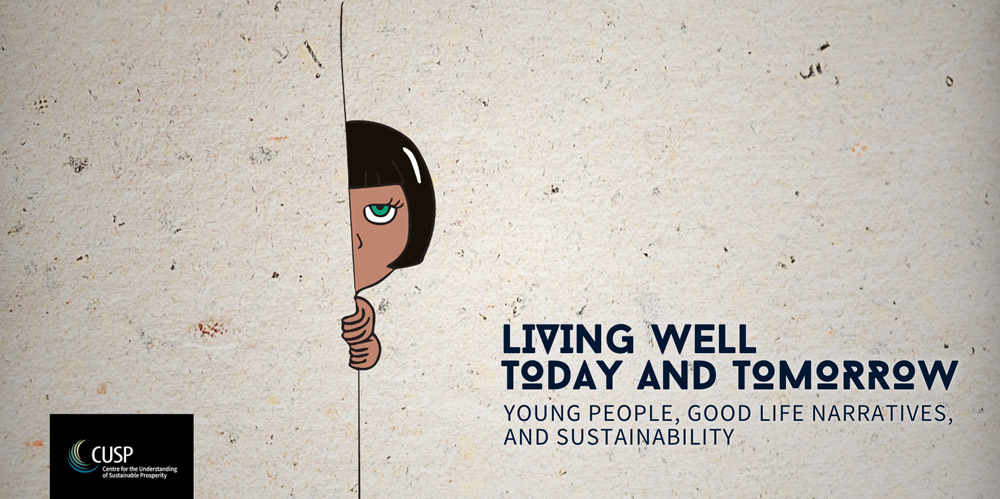
In this working paper, we explore young people’s use of shared social understandings to describe what is important in their present lives, to envision their futures, and to respond to the challenges they identify to the realisation of their good lives.
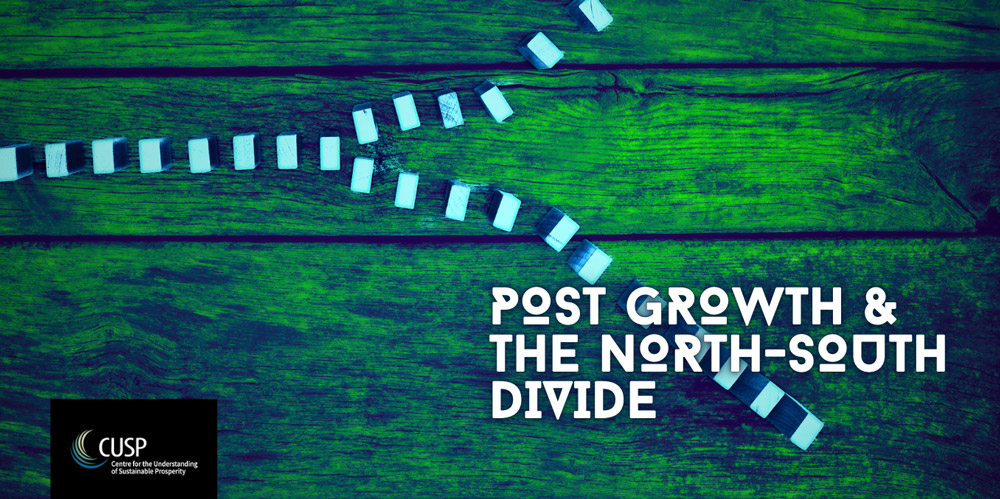
This working paper describes a two-region post-Keynesian stock-flow consistent macroeconomic model set out to analyse macroeconomic implications of a postgrowth transition in advanced countries on the economic and environmental conditions in the rest of the world.

This working paper describes an extension of the stock-flow consistent FALSTAFF model to test the existence of a monetary growth imperative. The extension is designed to simulate the phenomenon known as Baumol’s cost disease which arises from the existence of differential labour productivity rates in a mixed economy.

This paper addresses the use of sustainability frameworks in embedding education for sustainability into the curriculum of Higher Education Institutions (HEIs), focusing on the paradox that sustainability frameworks must facilitate transformation of existing structures whilst also being well-enough aligned with current conditions to be readily adopted by today’s HEIs.

Through a series of in-depth interviews with care workers Christine Corlet Walker et al explore the impact of investment firms on working conditions and quality of care in UK care homes. Combined with an analysis of care company accounts generating insights into the impacts of financialisation on the UK care sector, the report shows how investment firms are using extreme strategies to reduce staffing levels and cut costs in the name of profit, with appalling consequences for care.
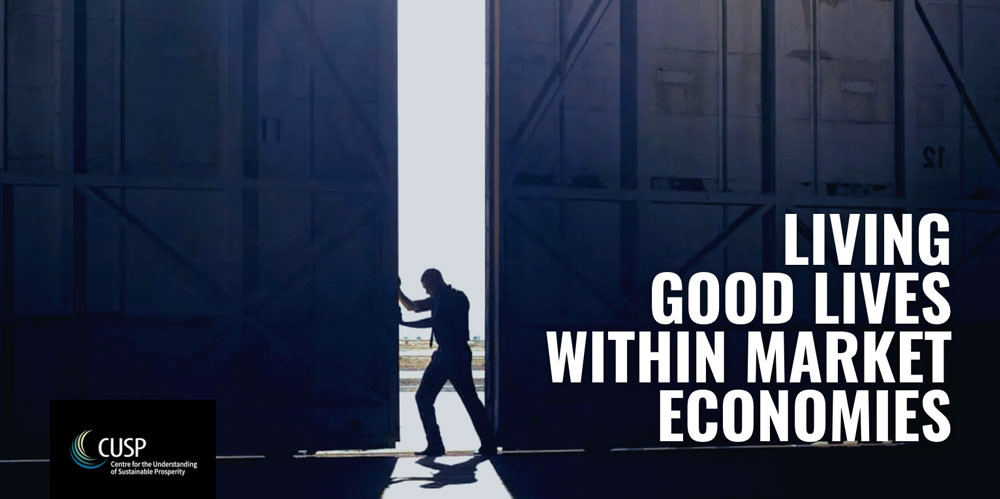
Almost everything is up for sale these days. The belief that markets are an invaluable instrument to direct our common economic efforts is deeply embedded in Western societies. But what role should markets play in a state of sustainable prosperity? This paper provides a review of Michael Sandel’s What Money Can’t Buy and The Tyranny of Merit.
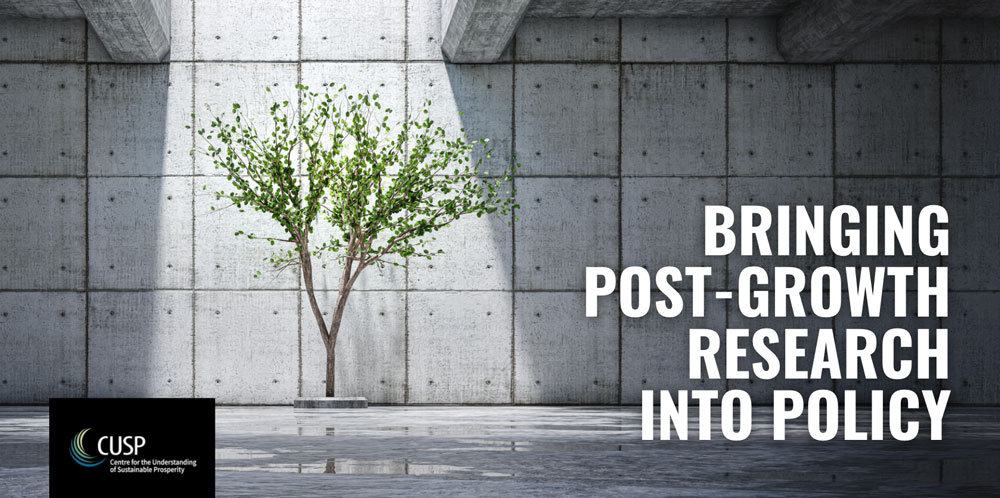
Drawing lessons from a six-month project funded by the Laudes Foundation, as well as from a wider review of evidence, this report analyses the barriers to bringing postgrowth research into policy. It concludes by making recommendations on the keys to doing this more effectively.

The achievement of sustainable prosperity requires the enhancement of human wellbeing alongside increased care for the environment. In this working paper, Patrick Elf, Amy Isham and Tim Jackson explore the emerging potential of Self-Transcendent Experiences (STEs) to deliver beneficial effects on human wellbeing and sustainable attitudes and behaviours.
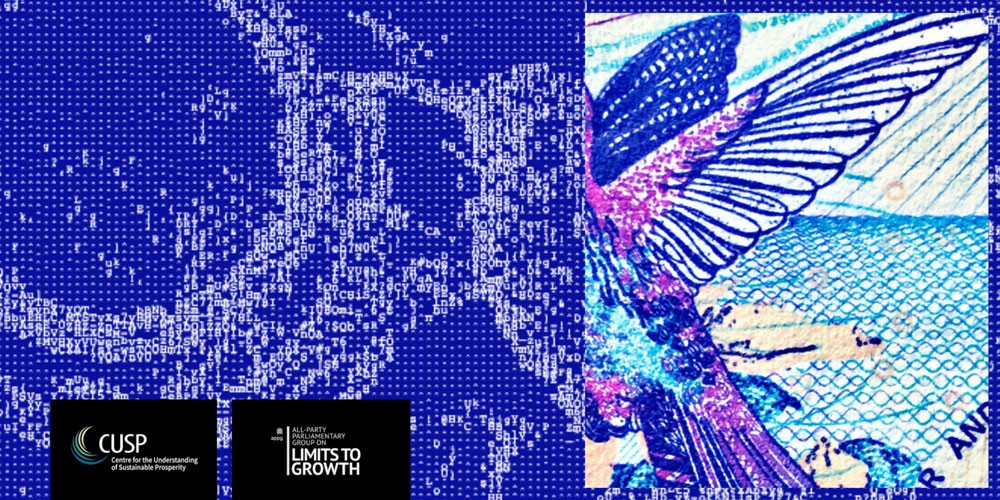
In the years since the financial crisis, a heated debate has broken out amongst macroeconomists about the appropriate roles of fiscal and monetary policy in managing public sector debt. This working paper and accompanying policy briefing introduce the main lines of argument on both sides of the controversy. We find i.a. that a return to fiscal austerity would be both dangerous and unjustified and that moving beyond ideology is key to the levelling-up agenda.
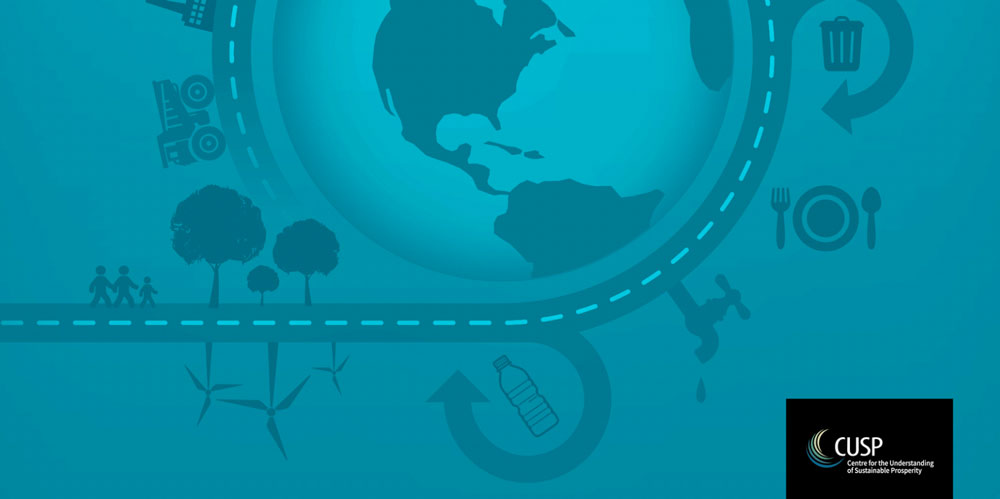
SankeySim was developed to support the work of the Council of Canadian Academies Expert Panel on the Circular Economy in Canada and the preparation of their report Turning Point (2021). In this working paper, we describe the SankeySim model that calculates the impact on materials throughput of various measures intended to increase the circularity of the Canadian economy.
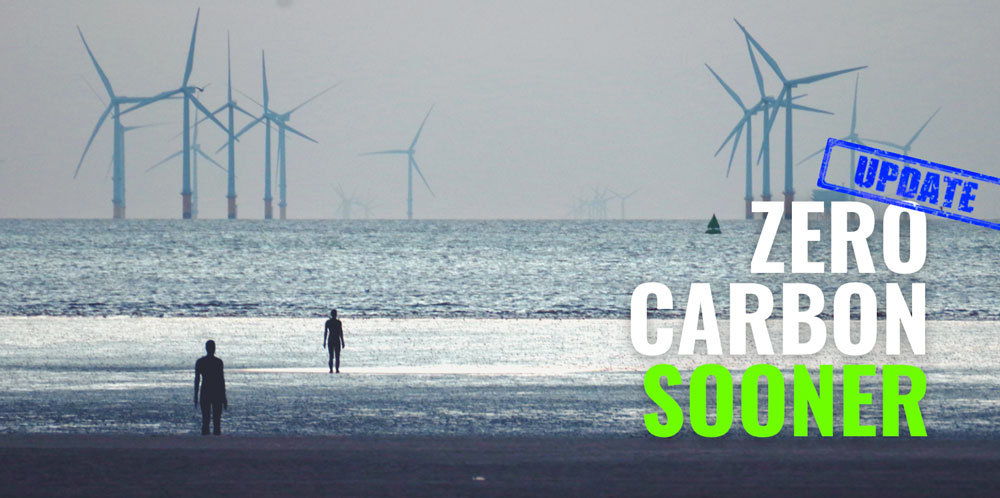
This paper is an update of an earlier briefing note, revised to take account of new findings from the IPCC’s updated 6th Assessment Report (AR6). The broad aim of the paper is to establish how soon the UK should aim for (net) zero carbon emissions.

This paper presents a systematic approach to identifying, analysing and transforming growth dependencies in the welfare state. Using adult social care as our case study, we explore how growing demand, rising costs and rent seeking can create growth dependencies. We analyse the structures that drive and reinforce these growth dependencies and, in so doing, we identify fruitful levers for transformation and mitigation.

This paper presents a systems dynamics model for exploring possibilities for achieving four SDGs (SDG-1, SDG-8, SDG-12, and SDG-13) in Iran. The model is used to generate four possible stories about the implementation of measures to achieve these SDGs in the future of the Iranian economy from 2020 to 2050. The results of the simulations shows that transformational scenarios provide better pathways in comparison to conventional scenarios. Moreover, transformational policy changes and extraordinary efforts are required for progress in achieving SDGs overall.
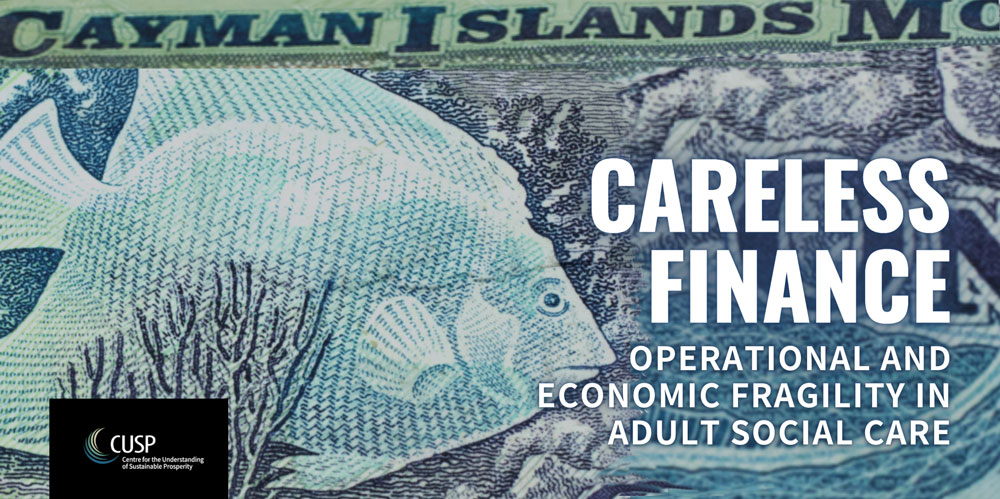
Adult social care across the OECD is in crisis. Covid-19 has exposed deep fragilities. Principal amongst these is the process of marketisation and financialisation of the social care sector. In this paper, we take a critical perspective on this process. We find that marketisation has facilitated the conditions for both financial fragility and operational failure; and argue that post-pandemic recovery represents a once-in-a-generation opportunity to overhaul these conditions and transform adult social care.

This working paper summarises the initial findings of a project whose aim has been to develop an agent-based (AB), stock-flow-consistent (SFC) macroeconomic framework to study the economic, financial and social implications of the transition to a net zero carbon economy.

Compiled by academics at three UK universities, this report presents a profile of participants in Extinction Rebellion’s (XR) mass civil disobedience actions in London in April and October 2019. The report is compiled from three datasets: a protest survey of participants in each of these two XR actions; observational analysis of court hearings of XR activists; and data from a previous survey of participants in two climate change marches 2009/10.

Contemporary economic and ecological politics frequently revolves around a fundamental problem, of what has been left to us by previous generations, and what we will leave to our successors. This has grave collective, indeed planetary, dimensions where climate change is concerned. However, as economic outcomes are increasingly determined by the power of assets and rents, so capitalist societies are witnessing a revival of dynastic forms of intergenerational advantage and disadvantage, where families and defensive legal instruments (such as trusts) sustain wealth privately.

The UK is experiencing a period of low productivity growth. Although exacerbated by the financial crisis of 2008, the underlying trend is longer and more persistent. This report aims to expand conventional understandings of productivity by exploring the literatures which relate productivity to the availability, production and use of energy in the economy.
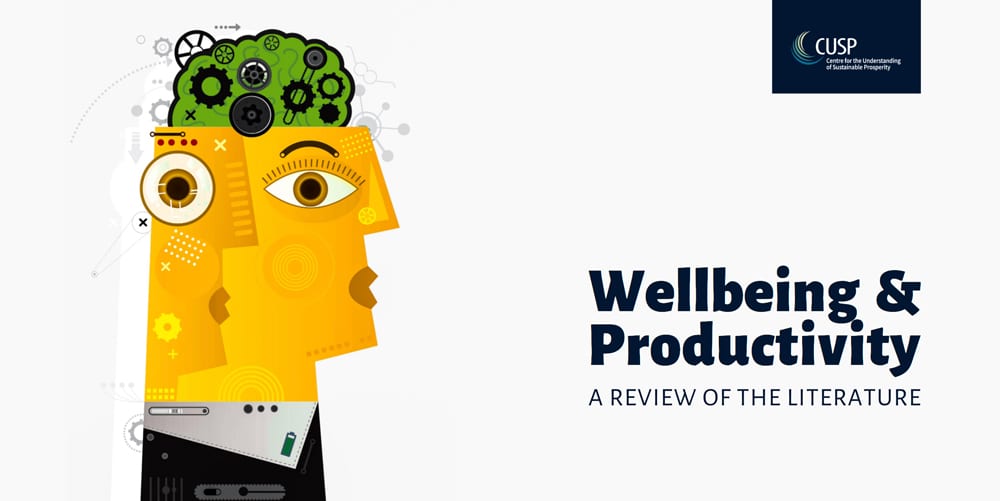
This report reviews the relationships between the different aspects of wellbeing, productivity, and productivity growth. It is the culmination of a desk-based evidence review, survey, and a mapping workshop held with experts from backgrounds including psychology, sociology, economics, and design. The focus is on wellbeing and labour productivity.
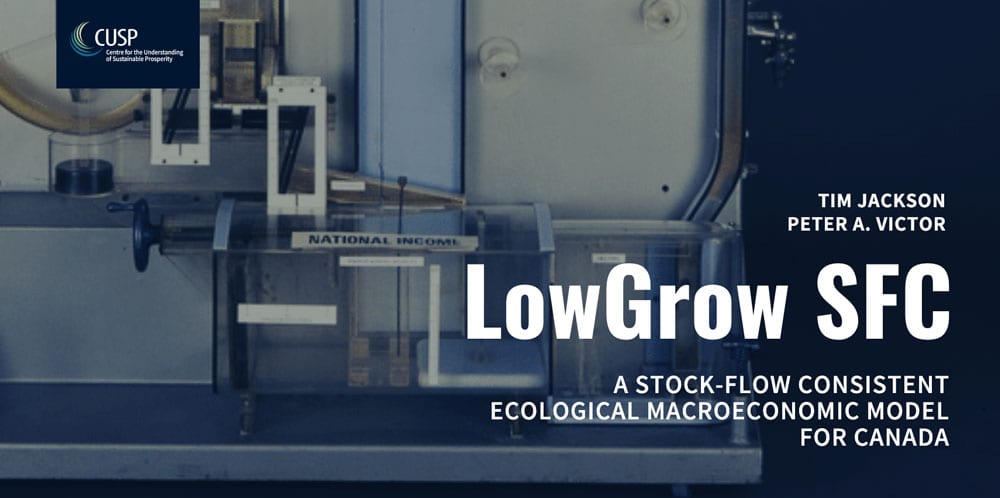
This working paper presents a stock-flow consistent (SFC) simulation model of a national economy, calibrated on the basis of Canadian data. LowGrow SFC describes the evolution of the Canadian economy in terms of six financial sectors whose behaviour is based on ‘stylised facts’ in the Post-Keynesian tradition. Contrary to the accepted wisdom, the results indicate the feasibility of improved environmental and social outcomes, even as the growth rate declines to zero.

It has been posited that the health and social care sector may become a ‘sweet spot’ of good work, in that it will provide plentiful, good quality jobs that are associated with low environmental impacts. To explore this hypothesis, this paper addresses two questions: to what extent will jobs in the health and social care sector be displaced through technological advances such as in artificial intelligence (AI) and robots? And to what extent may the remaining jobs provide ‘good’ work?

Since its development in the 1930s, GDP has been the most widely used measure of the health and progress of an economy, being adopted as the principal policy objective of countless national and international bodies across the world. Its many shortcomings as a measure of progress are well documented, and the alternative indicators of progress developed in response to these shortcomings have been diverse and numerous. This paper synthesises the literature, highlighting the importance of context and purpose in determining what makes a ‘good’ indicator.
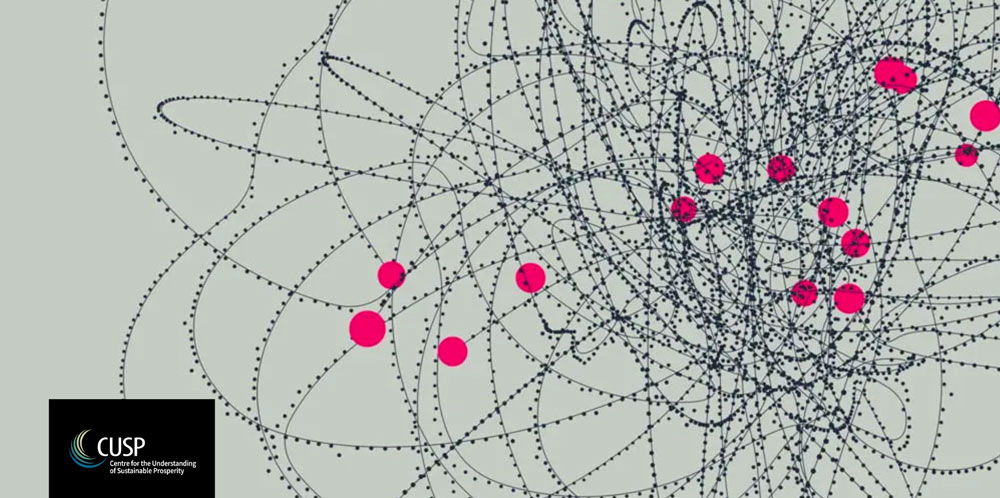
This briefing paper summarises the dilemma associated with using mainstream, macroeconomic models to guide disruptive, transformative change such as those that might occur under ‘deep decarbonisation’: a rapid transition to a net-zero carbon economy. Some form of macro-economic modelling framework is essential to enable policy-makers to exercise short- and long-term fiscal responsibility. Incremental models based on historical behaviour, however, are a poor guide to outcomes under circumstances of disruptive change.
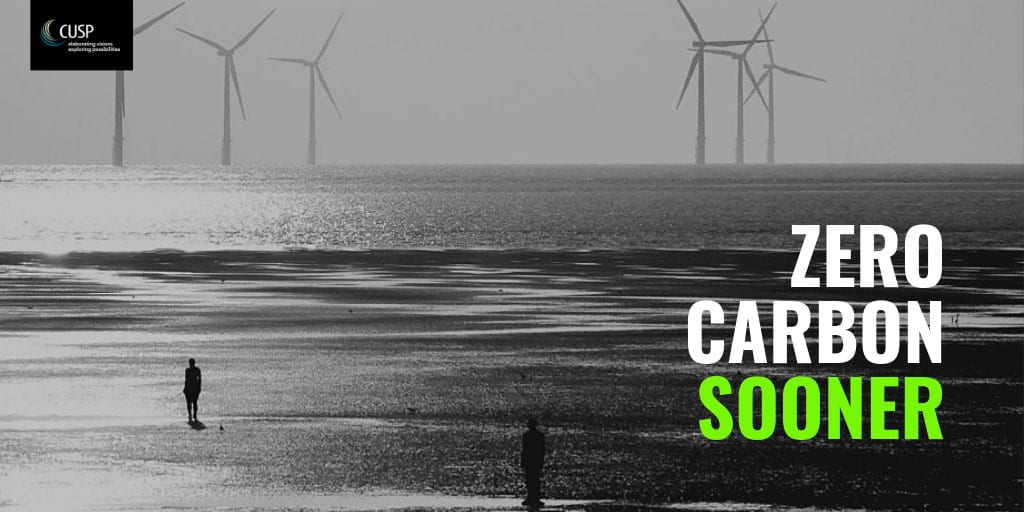
CUSP briefing addressing the question of when the UK should aim for zero carbon emissions. In it, Prof Tim Jackson is making the case for a (fair) zero carbon target of 2030, calling for a policy strategy not only on zero carbon targets, but emission pathways, with a defined level of negative emission technologies. It is notable that reduction rates high enough both to lead to zero carbon (on a consumption basis) by 2050 and to remain within the carbon budget require absolute reductions of more than 95% of carbon emissions as early as 2030.

It is nearly half a century since the Club of Rome’s Limits to Growth report was published. The thesis at its core—that infinite growth is impossible on a finite planet—is a seemingly common sensical proposition. To investigate why the ‘limits to growth’ has not yet led to decisive political action, this paper examines the thought of its most explicit critics in debate, employing Wayne Booth’s ‘Listening Rhetoric’, used to understand opposing discourses on their own terms.

The European Union is struggling. One-sided fixation on growth, competitiveness, deregulation and export-orientation have led Europe into deep crisis. The need for climate change mitigation, environmental protection and tackling inequality now present ever bigger challenges to the EU. Starting from a historical perspective, this CUSP paper argues, that post-growth concepts have an enormous potential to re-constitute Europe.

Even the most perfect democracy can only represent the wishes of people currently alive. But how can the interests of members of future generations be safeguarded in political systems? This paper outlines different ways in which this could be achieved through reforms to the UK political system, and then looks in more detail at examples in other countries.

This paper aims to contribute towards the development of a political economy of work fit for purpose in a world of social and environmental limits. In order to get beyond today’s dominant conceptions of work in a growth-based capitalism, Simon Mair, Angela Druckman and Tim Jackson explore the role of work in historical utopias.
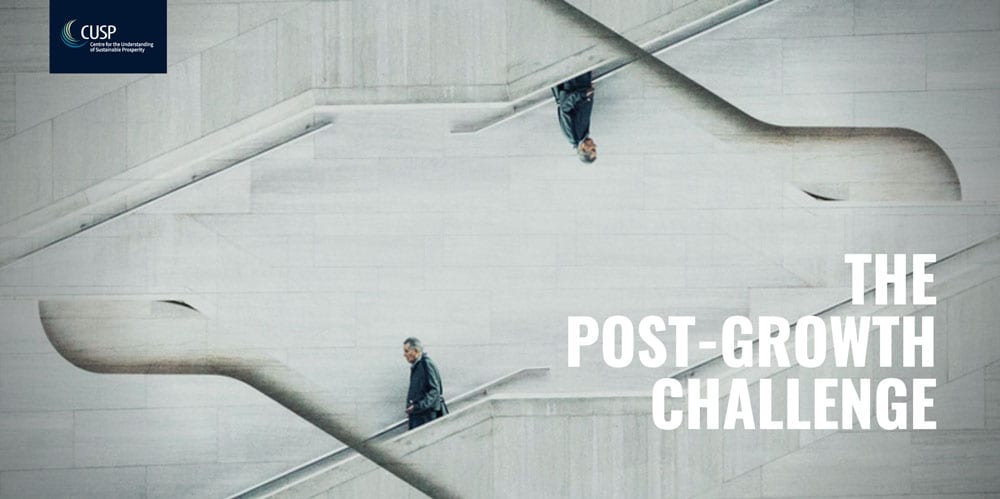
Sluggish recovery in the wake of the financial crisis has revived discussion of a ‘secular stagnation’. These conditions have been blamed for rising inequality and political instability. Tim Jackson contests this view, pointing instead to a steadfast refusal to address the ‘post-growth challenge’.

Piketty argued that slow growth rates inevitably lead to rising inequality. If true, this hypothesis would pose serious challenges for a ‘post-growth’ society. Fiscal responses to this dilemma include Piketty’s own suggestion to tax capital assets and more recent suggestions to provide a universal basic income that would allow even the poorest in society to meet basic needs.

It is widely acknowledged that GDP is not a suitable measure of economic welfare. In this paper, Simon Mair, Christine Corlet Walker and Angela Druckman propose a novel framework for indicator development: the ‘Theory of Change’ approach — a causal model approach in which the relationships between system inputs, activities, outputs and outcomes of the economy are explicitly articulated, and can be used to identify theoretically sound indicators for economic welfare.

The purpose of this paper is to prepare the ground for a strand of work in CUSP which aims to look at the role of culture in everyday life, and in doing so to understand how it might operate as an element of sustainable prosperity. The paper considers the basis on which we might start to think about new legitimations for cultural policy and a fuller understanding of its potential for living well with less.

As environmental crises become ever more severe, calls for authoritarian solutions are reappearing: Democracy, so the argument goes, has proven to be too slow to respond to urgent threats. In this paper, Marit Hammond and Graham Smith respond to this charge by revisiting the role of democracy within a transition to sustainable prosperity.

The idea that lifecourse transitions might offer ‘moments of change’ in which to encourage more sustainable consumption is popular, yet insights from the sociological literature on lifecourse transitions have rarely been brought to bear on this assumption. This paper focuses on two distinct lifecourse transitions – becoming a mother and retirement – and through qualitative longitudinal research evaluates the assumption that such periods provide opportunities for movement to more sustainable consumption.

How do young people see the world? What are their hopes and aspirations for the future? What does the ‘good life’ mean for them in an age of environmental and social limits? These are some of the questions that motivate the CYCLES project which we are launching with this report.
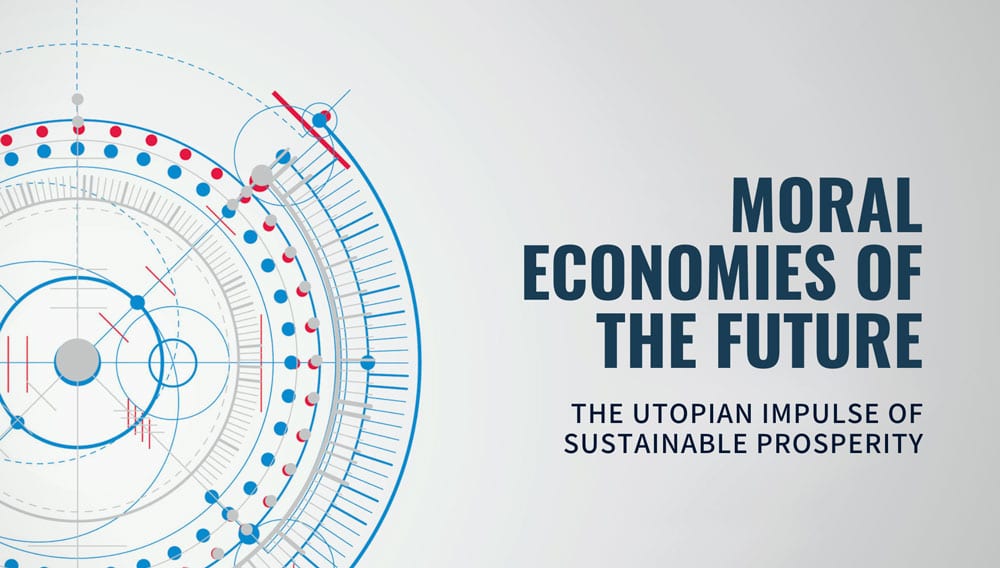
The field of ‘moral economy’ explores the ways in which seemingly amoral economic institutions are normatively and politically instituted. However it has tended to neglect the question of how economic actors make commitments to the long-term future, of the sort that are implied by the idea of ‘sustainable prosperity’. Anthropocenic utopias are urgently required.
